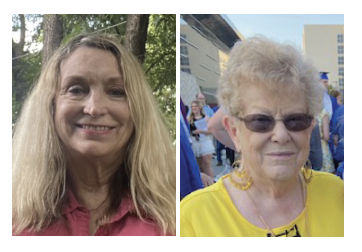The journalism industry is in crisis, and there aren’t nearly enough reporters around to cover all the public meetings they used to attend.
So what if a small army of citizens could be recruited to attend and make a record of those meetings?
That’s kind of the idea behind Wichita Documenters, a program launched earlier this year. Retired librarian Sharon Ailslieger is one of the Documenters.
“I believe in civic engagement, and I think people should be aware of what’s going on in their government, especially at the local level,” Ailslieger said.
Affiliated with the national Documenters Network, Wichita Documenters is funded by the Wichita Foundation and managed by the Kansas Leadership Center in partnership with members of the Wichita Journalism Collaborative (of which The Active Age is a member). The program’s initial funding is for three years.
The work of Ailslieger and other Documenters can be found online at documenters.org.
Ailslieger spent her career as a librarian for Boeing, Friends University, Garden City and McConnell Air Force Base. A friend told her about the Documenter program.
After applying, she attended training at the leadership center. She was already familiar with the operations of many public bodies from her early years as a member of the League of Women Voters, when the organization routinely sent observers to public meetings.
As a Documenter, Ailslieger has attended meetings of the Wichita City Council, Sedgwick County Commission and Metropolitan Area Planning Commission. Many of the items she takes notes on are routine, such as proclamations, reports from staff and approval of expenditures. Occasionally, there’s an item that the news media covers, like the City Council’s decision in July to turn the former Park Elementary School into a homeless shelter and services center.
Documenters list agenda items, summarize discussions in varying degrees of detail and record votes and other official actions.
Like journalists, Documenters try to be accurate and objective. Unlike journalists, Documenters don’t ask follow-up questions, interview participants or incorporate other sources of information into what they write.
They are given the option of summarizing the three most important takeaways from their notes and listing any unanswered questions they have. Their notes are turned into KLC for editing before being posted online.
While some Documenters use a phone or laptop computer to record meetings, Ailslieger said, “I’m old fashioned. I just sit there and take notes.”
Documenters are encouraged to take photographs and insert “hyper-links” — which are digital links to other sources of information — into their notes.
“I’ve taken a picture or two,” Ailslieger said. “I’m not as techie maybe as the young (Documenters) are.”
Ailslieger realizes that some might find attending public meetings boring but said she’s the type of person who goes to Topeka just to watch the proceedings of the Kansas Legislature.
“Sometimes it’s interesting,” she said of her work as a Documenter. “Sometimes meetings drag on because they all like to hear themselves talk.”
Either way, Ailslieger said, “I like to know what’s going on.”
Another Documenter, Linda Shriver, has attended meetings of the city’s District 2 and 4 advisory boards and its Park Commission.
“I have not been that involved in city government, so this has been a crash course for me,” she said. “I’ve enjoyed learning how city government works.”
A retired special education teacher, Shriver compared the work to “taking minutes. I’ve served on a few boards, and it’s very much like taking minutes at a board meeting.”
Shriver said all the participants of the meetings she documented “seemed well versed in what they were talking about,” although there were differences.
“District 4 was a little more laid back and chatty,” Shriver said. “District 2 was pretty businesslike. I don’t think they talked about anything that wasn’t on the agenda.”
In her notes for the District 4 meeting, Shriver asked, “Is there a way to encourage more people to take part in these meetings?”
Wichita is one of 18 cities in the Documenters Network. So far, 72 Wichita Documenters have been trained. The program is focusing on the meetings of 15 local boards and commissions for now, said Debbie Haslem, its manager.
“I think our first group (of Documenters) has really been those people who have gone to meetings before,” Haslem said. “I’m also looking at ways to reach out to other groups, because I’d like the audience to get as broad as possible.”
To find reports by the Wichita Documenters, visit documenters.org. People interested in participating can learn more at kansasleadershipcenter.org/wichita-documenters.









